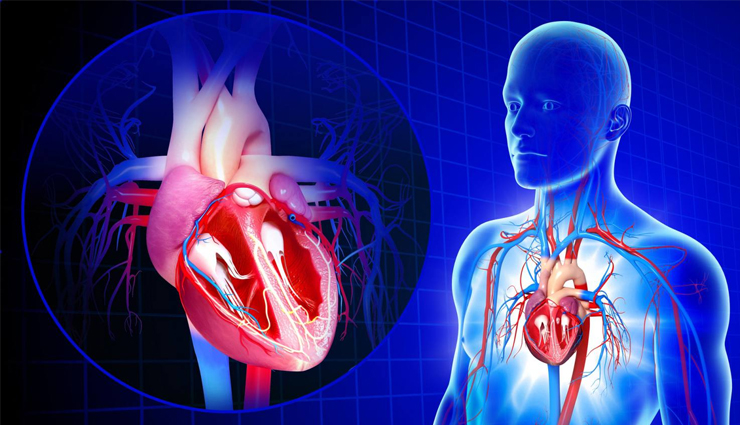- Home›
- Healthy Living›
- 6 Least Known Health Benefits Of Oysters
6 Least Known Health Benefits Of Oysters
By: Priyanka Maheshwari Thu, 15 Feb 2024 12:46:32

When contemplating oysters, one typically envisions enjoying them accompanied by a slice of lemon, perhaps enticed by their exotic allure. This allure isn't unwarranted; after all, oysters are the epitome of elegance with their iridescent mother-of-pearl shells. Beyond their briny, tangy flavor, oysters boast a wealth of essential vitamins and minerals. Yet, beyond their gustatory pleasures, what nutritional benefits do oysters offer? Are they truly a boon for your well-being? This piece delves into the health advantages and potential risks of consuming oysters, offers insights on incorporating them into your diet, and identifies those for whom caution is warranted. Continue reading to explore more.
Oysters represent a diverse array of saltwater bivalve mollusks that inhabit marine or brackish environments. They play a crucial role in ecological balance, acting as natural filters that cleanse contaminants from the water, thereby fostering habitat for other marine life.
Certain varieties of oysters can be savored either cooked or raw, each presenting its own set of culinary delights. Alongside their reputed aphrodisiac qualities, purported to enhance libido, these mollusks offer a spectrum of health benefits worth noting.

# Potential Contribution to Weight Management
The proteins present in oysters hold promise in aiding weight reduction or management. Research suggests that meals high in protein may enhance feelings of satiety, decrease overall energy intake, and support weight loss efforts. This effect is largely mediated by two hormones: cholecystokinin (CCK) and ghrelin. Ghrelin, produced by the stomach, stimulates hunger, with its levels decreasing post-meal. Conversely, CCK, released in response to protein-rich foods, promotes feelings of fullness. This interplay between decreased ghrelin and increased CCK levels signals satiety to the brain, potentially aiding weight control.

# Potential Impact on Blood Glucose Regulation
Protein-rich diets, by promoting satiety and moderating energy intake, may assist in regulating blood sugar levels. Additionally, such diets have demonstrated a capacity to reduce hemoglobin A1c (HbA1c) levels—a marker associated with blood glucose management—in individuals with type 2 diabetes. Furthermore, adherence to a high-protein regimen over six months has been associated with weight loss and lowered blood pressure among these individuals. Nonetheless, further research is essential to elucidate these effects.
# Potential Enhancement of Antioxidant Status
Oysters contain a notable antioxidant compound known as 3,5-Dihydroxy-4-methoxybenzyl alcohol (DHMBA), which may mitigate oxidative stress at the cellular level. While investigations into DHMBA's effects are in preliminary stages, early evidence suggests its potential in averting cellular damage attributable to oxidative stress. Moreover, studies centered on oyster culture hint at DHMBA's prospective role in preventing and managing liver diseases.

# Potential Reduction in Cardiovascular Risk
The omega-3 fatty acids found in oysters play a pivotal role in lowering blood triglyceride levels, a key marker in cardiovascular health. In fact, certain prescription omega-3 fatty acid agents endorsed by the FDA target triglyceride reduction. Additionally, oyster consumption has been linked to diminished cholesterol levels, including total cholesterol, coupled with an increase in high-density lipoprotein (HDL) or "good" cholesterol. This favorable lipid profile may help mitigate the risk of cardiovascular diseases.

# Potential Influence on Sexual Health and Function
Although raw oysters have been traditionally associated with aphrodisiac properties, scientific substantiation for this claim remains limited. However, zinc deficiency has been correlated with reduced testosterone levels and erectile dysfunction in men. Studies suggest that zinc supplementation, abundant in oysters, may elevate testosterone levels and enhance libido, as evidenced in elderly male subjects and male rats.

# Potential Support for Fetal Development
Omega-3 fatty acids are indispensable for fetal development, contributing to gestational length, neurological development, and birth weight. They may also bolster fetal health and prolong gestation in situations where maternal health poses risks to pregnancy. Nevertheless, further research is indispensable to ascertain the extent of these benefits conclusively.
Note: Due to concerns about metal contamination, particularly mercury, pregnant women typically avoid seafood consumption and opt for supplements. Additionally, caution is advised regarding raw oyster consumption, with thorough cooking recommended, particularly for women.





